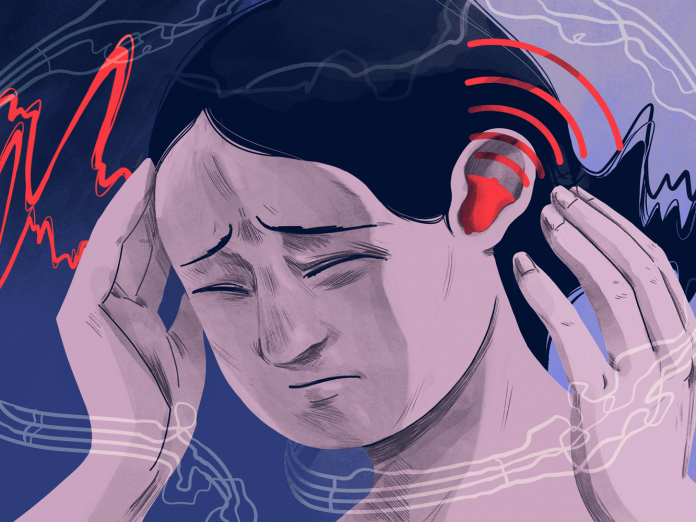Combat hearing loss is one of the most common injuries sustained by military personnel. There are precautions in place to protect soldiers from this type of injury, but, some situations are too loud or too close for even the best protection.
For many soldiers, returning home after sustaining combat hearing loss can be difficult. It is important that they receive the appropriate care and support so they can adapt successfully to their new circumstances.
If you believe you’ve suffered from combat-related hearing loss it’s important to get in touch with a doctor and explore your options for treatment.
Sustaining Hearing Loss
Combat hearing loss occurs when soldiers are exposed to sounds above the standard threshold for safe listening. Any sound exceeding 125 dB is considered unsafe and can cause permanent damage to your hearing with only short-term exposure.
The most common causes are explosions from bombs, mortar shells, grenades, artillery rounds, etc. Things like small arms fire (rifles and pistols) fired near unprotected ears. This includes guns being shot at a close distance during training exercises or in self-defense situations by fellow soldiers who may not have their ear protection on properly.
Soldiers can also suffer hearing loss from constant, high-level noise exposure even if there is no single loud sound. This type of hearing loss is called “acoustic trauma” and can be caused by the sustained roar of jet engines, helicopters, tanks, or large caliber weapons.
In some instances, your hearing loss may not be circumstantial. You may have used all the necessary protection, but it was faulty or defective.
Several personal injury lawyers are filing earplug lawsuits against 3m for providing defective earplugs to the U.S military.
The dual-ended Combat Arms Earplugs were designed to protect soldiers from the devastating consequences of sudden loud blasts, but they were defective and actually did the opposite. They allowed sound to leak through them causing permanent damage over time.
Veterans are negotiating settlements with all responsible parties.
Recognizing Combat Hearing Loss
If you are experiencing any of the following, it’s likely that your hearing has been affected by combat:
-You have ringing or buzzing in your ears (tinnitus)
-You can’t hear people talking quietly or normally
-You can’t understand what people are saying, even if they’re speaking clearly
-You feel like there is pressure inside your ear(s)
Diagnosing Combat Hearing Loss
If you experience any changes in your hearing after returning from deployment it’s important to see a doctor as soon as possible for a comprehensive hearing evaluation.
Your doctor will ask about your symptoms and perform a physical examination. They may also order some diagnostic evaluations like a hearing test, audiogram, or vestibular evaluation.
A hearing test is done by having you listen to a series of beeps through headphones and then responding by pressing a button. The test measures how well you hear different pitches, volumes, and frequencies.
An audiogram is a graph that shows the results of your hearing test. It will indicate which frequencies you are able to hear and at what volume level. This information can help your doctor determine the type and severity of your hearing loss.
A vestibular evaluation is used to assess any damage to your inner ear or balance system. This may be ordered if you’re experiencing dizziness, vertigo, or problems with balance.
With these evaluations, your doctor can determine whether or not your hearing has been affected.
Treating Combat Hearing Loss
If it’s determined that you’ve suffered from combat-related hearing loss there are several treatment options available. This includes mental health avenues of treatment as well. If your loss of hearing has impacted your mental stability, it’s important to seek therapy.
Hearing aids are the most common solution for hearing loss. They are small devices that sit behind or inside your ear and amplify sound so you can hear better in noisy environments.
If you’re experiencing significant problems with balance and vertigo, your doctor may recommend vestibular rehabilitation therapy (VRT). This is a specialized form of treatment designed to help retrain your brain after an injury to the inner ear, which controls balance and equilibrium. VRT exercises include things like walking on uneven surfaces while keeping your eyes closed as well as eye movement training where patients use their vision rather than proprioception when moving around objects in space without falling over them.
You could also consider cochlear implants. This is an option for people who have severe hearing loss or are deaf. The implants can help you to hear better in loud environments, but it’s not a cure-all solution.
There are other assistive listening devices like FM systems, sound field systems, and personal listeners.
If you are a veteran who has been affected by combat-related hearing loss, there is help available. Talk to your doctor about what’s best for you. You may need to try several different treatments before finding the one that works best for you. There is no shame in admitting that you need help- millions of people suffer from some form of hearing loss. Don’t be afraid to ask for assistance and seek support. With the right tools, you can continue living a fulfilling life.




























































